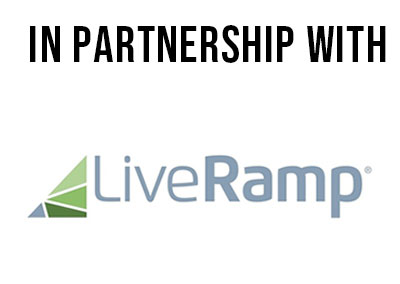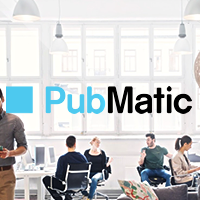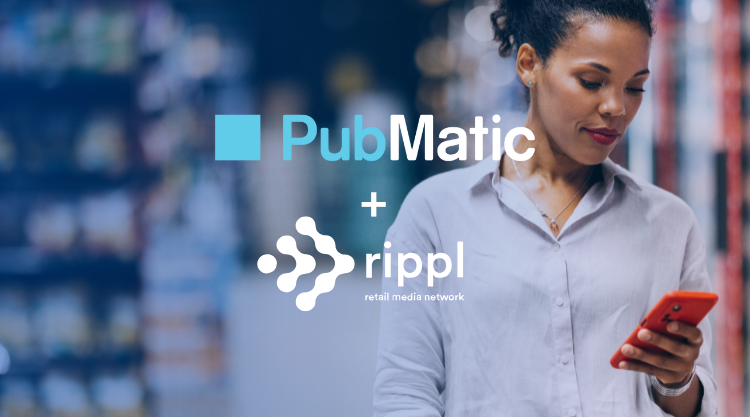The demise of third party cookies is on the horizon, and finding long term alternative solution is high on everyone’s agenda. Our Regional Director ANZ Peter Barry spoke to Ashton Media about a cookie-less future and why it’s good for consumers, good for advertisers and publishers and good for everyone in between.
FULL EPISODE TRANSCRIPTION
Peter: [00:00:00] People do care to a point, but at the same time, they are willing to hand over their data when perhaps they can identify the right value exchange. So, in the case of a social media platform, you get to connect with your friends. You get access to news content and so on and you understand that handing over your personal information is part of that value exchange.
Gavin: [00:00:30] Hello. I’m Gavin Stewart, Marketing Director and Co-Founder of Ashton Media, and the host of Programmatic In Your Pocket, brought to you by our friends at LiveRamp. Short, sharp, stories and solutions to the biggest challenges in marketing, advertising, media, and CX. Up next, we’ll be playing the full interview with Peter Barry. Stay tuned.
Please make sure to subscribe, rate, comment and tell anyone you know that’s interested in this industry about this podcast and your favourite episode. You can find AshtonCast on all the major podcast players. Go to Ashtonmedia.com.au/AshtonCast
So, we’re here at the Programmatic Summit 2020 in Sydney, with Peter Barry, the Regional Director, Australia and New Zealand from PubMatic. Welcome Peter.
Peter: [00:01:26] Thank you, Gav. Great to be here. What a great couple of days it’s been.
Gavin: [00:01:29] Mate, it’s been a big week, hasn’t it? We’ve been in Melbourne, we’ve been in Sydney. What have been your thoughts on the events?
Peter: [00:01:35] Great to see it arrive, after seven years, down to Melbourne. Some really, really smart and switched on people down there. So great for them to get a piece of the action and then, Sydney over twice the size of the event down there. Awesome. It’s the who’s who of programmatic, so well done to you and the team.
Gavin: [00:01:56] Thank you very much, sir, and thank you very much for your support. So, and can you tell us a little bit about PubMatic and yourself please?
Peter: [00:02:01] So PubMatic is, I guess you’d call us traditionally a supply side platform, we fuel the endless potential of internet content creators. So what that means is we work with publishers to help monetize their ad inventory and keep the lights on, help them create content.
We also work more and more with advertisers and marketers to make sure they get the, kind of, business outcomes they need. As for myself, well, I’m not from around here. I’m Irish. I’ve been in Australia for six years and I’ve been four years at PubMatic and loving every minute of it.
Gavin: [00:02:34] Fantastic. And so, you know, one of the big themes in the trade press and in the press in general and here at the summit has been around the demise of the cookie. So, how do you feel about third-party cookies in general, and have the upcoming restrictions to third party cookies been a surprise or would you say they’re more long awaited?
Peter: [00:02:53] I feel good about it. I think it’s good for the consumer and what’s good for the consumer or the user is good for us as an industry. We’ve been given a two year or less than two years now lead time. My concern is that we don’t move fast enough.
I think, putting a deadline on it as a good thing. As for whether it’s a surprise or not you know, if it’s a surprise for your business, then you’ve literally been hiding under a rock for the last couple of years because Safari and Firefox carried this out, ages…years ago.
Google don’t want to lose out in the browser wars. So they were all just going to follow suit. So it is a good thing. We just need a long term solution.
Gavin: [00:03:37] So with data becoming more valuable and third party cookies disappearing, what do you think this means for the future of digital advertising?
Peter: [00:03:45] I think there will be there, conceptually, at least, there may be less data, but it will be a lot more valuable, a lot more opt-in data, which I think is a good thing. I think there’s a danger we may get to this later, but I think there’s a danger if you’re a publisher, you asked about the advertising side, but if you’re a mid to lower tier publisher without a robust verified dataset that you’re in danger of potentially losing out unless there’s a really robust solution.
As I said, if you’re a, a larger publisher, like a nine or a ten or let’s say Google or Facebook, you might not call them publishers, but they have a lot of verified data. And then you will be in a better position. But the fear I have is that all of the variety and diversity of content that we have in the internet may not be sustainable unless we come up with a good solution.
Gavin: [00:04:43] Great answer, Pete. So how crucial will it be for advertisers to identify post-cookie marketing strategies? And do you think the two-year timeframe is going to be a heightened factor?
Peter: [00:04:53] Yeah. I think it’s just as important for advertisers to, to find a viable solution as it is for publishers. So the onus is on both to collaborate. We’ve just announced a PubMatic product, if you want to call it that, called Identity Hub.
And that essentially allows publishers to use or work with any ID solution that a buyer may want to use. Essentially, we’re a facilitator. The idea there is that we enhance or encourage that collaboration. So very important. They’ve obviously got to be able to identify the right audience and the right moment, the right context, and so on.
The two-year impetus. It’s certainly lit a fire under everybody, but again, you know, we need to make sure that we’re, we’re acting at quickly and not talk about it and create a working groups and, and that sort of stuff…then we find ourselves a year in and we still don’t have a solution.
So, we really need to move fast on it, really need to collaborate and really need to ensure that Google in particular, are open to cooperating and really opening the kimono, so to speak.
Gavin: [00:06:03] So you’re basically, what you’re saying there is, cut to the chase, is it’s time to get stuff done.
Peter: [00:06:08] Yeah, 100%. Like I said, it’s no surprise to anybody. And we as a business, I’ve been looking at this way in advance of Google’s announcement but now there’s a timeline on it and I absolutely think that’s a good thing.
Gavin: [00:06:18] Great. So, there’s no denying that programmatic is groundbreaking technology. It’s brought new capabilities to the industry and allowed marketers to purchase data driven granular audiences at scale. So, to what extent do you think this is going to change with the blocking of cookies?
Peter: [00:06:33] I think potentially short term, there will be less data. But actually, again, to my earlier point, I think over the long term, when we find that robust solution and it’s when not if then I think ultimately better outcomes for marketers, better outcomes for publishers especially, and hopefully those mid to smaller publishers and better outcomes for consumers.
But the challenges that we need to make sure it is a long-term solution. So, what’s happening with the cookies may move to device IDs next. So, I think we need a solution that will work for the next ten, twenty years and beyond and not something that’s gonna really kind of patch up the cookie piece. And then suddenly we find device IDs are being challenged. So it needs to be that long term solution, or we will find ourselves back here in two or three years time.
Gavin: [00:07:27] So you’re talking about a long term, ten-year strategy there, right? So how do you see that with the way the industry currently runs? How’s it going to work?
Peter: [00:07:34] Well, name me an industry that is not a short-term thinker, right? If you’ve got numbers to hit, if publishers need to keep the money flowing to keep the lights on, keep the journalists reporting and going to wherever we need them to report quality content. Then you’re forced to have a short-term view. You know, I think again, the onus is on us as an industry to come together, whether that’s with the IAB or any other group to have both a short term and cookie was a very short term outlook and a long term view on it.
So we need to do both in parallel. We’re guilty of being of short termism but I don’t know. I’m pretty sure you’ve had a couple of events this week. You have targets like everybody else. I have targets. Generally, I live quarter to quarter, sometimes month to month, sometimes even day to day, believe it or not. So that encourages short termism. We need to get out of that mindset.
Gavin: [00:08:31] How can we improve the online experience for consumers and clean up the ad ecosystem as a whole community with industry wide change so that everyone benefits from it.
Peter: [00:08:44] We’re doing it. The death of the cookie should herald a much cleaner user experience. You remove a lot of pixels from the page, speeds up the browser and ultimately, everything is better for the consumer. They also get a better experience when it comes to ads because there is better consent, more robust consent. So those personalized ads are more useful.
Ultimately that just leads to a far better experience. I think, we’re seeing more and more in the U.S. that the creative side is being pulled into the conversation now. It’s not just the media guys and the tech guys. We’re also seeing those creative folks being brought in. I think if you can have a round table discussion about how creative can sync with tech then add our data then, then all of a sudden you’ve got a much better model than you did by the cookie.
Gavin: [00:09:36] So, do you think that we could see the rebirth of the big ad, perhaps?
Peter: [00:09:42] The rebirth. I mean, we’re there like CTV, it’s sitting on your wall, right? That’s the big ad. That is the ultimate big ad. So I think we’re already there. I think you’ve got companies like Bonsai and Celtra and some of the other like Playground XYZ who are already operating in that space. So, absolutely I think we will, but again, there’s a line between, you know, having that beautiful, there’s only so big it can be on a device in your hand, so it can’t be too intrusive as well, or too disruptive, I guess. So there’s, there’s always that balance, but we’ve figured that out.
Gavin: [00:10:19] Interesting. Another big thing that’s come through is , privacy, trust, et cetera, et cetera. The government is now turning its eye to ad tech, right? So, with the impending ACCC inquiries into ad tech supply chain, focusing on digital display ads compounded by the government announcing plans to introduce a binding online privacy code into the privacy act. How do you think this is going to affect the type of inventory that vendors offer?
Peter: [00:10:46] I think it’s all tied into the same problem. At the conference earlier on during our panel, I asked to show our hands how many people really care about their data, where it goes, who uses it, and so on.
And pretty much everyone in the audience put their hand up. I then asked how many people have a social media profile and everyone, in fact, we got a couple of additional hands go up. Um, and I’m not entirely sure what the message there is, but what I took from that is that people do care to a point but at the same time, they are willing to hand over their data when perhaps they can identify the right value exchange.
So, in the case of a social media platform, you get to connect with your friends. You get access to news content and so on. And you understand that handing over your personal information as part of that value exchange. I think we need to get better as an industry at allowing consumers know that that is the value exchange that you either pay or pay a subscription, a la Netflix or you have to deal with or put up with is probably the wrong term.
But you need to allow for ads in your experience. And so I think. Again, getting back to the, the, the cookie thing, similar with the data regulations it is a good thing. It’s good for consumers. It’s good for awareness as good for the long-term health of the industry. If I look at GDPR in the UK and what it did to our business, it was a short-term dip. But now our business in EMEA or the EEA is absolutely thriving. It didn’t adversely affect the industry there and long term, like I said, very good. So I welcome it here.
Gavin: [00:12:25] Great. So what do you think the expected effects of limited cookie data will be on the publisher and advertiser relationship?
Peter: [00:12:34] Short term, like I said, I think there’d be less data. The real risk are those smaller publishers, like I said, so if you’re a nine, the nines of the world with all of this addressable audience in there, you’re golden. That’s great. That’s a great place to go for a marketer to find their audience.
Earlier on in one of the sessions in the, the conference I think it was Zara from Lendi, I think it was said, as a marketer, you should go to these big publishers with verified addressable audiences and match your users there. The danger there is that you’re not one of those publishers.
Again, to my earlier point, you lose out if you don’t have those deep audience sets. I think to answer your question, the top tier of publishers and sophisticated marketers, really great. But if you go below that, I think we as an industry have a responsibility to make sure that those smaller publishers and less savvy marketers are able to survive and thrive.
Gavin: [00:13:37] What future of advertising methods to you envision after these developments, and is there a future that you prefer?
Peter: [00:13:44] I see those more robust datasets, which means we get more sophisticated targeting and we get better creative in front of the genuinely the right person in the right environment with an ad that enhances their experience.
So, I think that is the promise. That was always the promise, but it was not delivered. Now, I think we have an opportunity to deliver on that promise. So that’s what excites me, and that is the future, I hope for.
Gavin: [00:14:09] What new strategies are publisher’s going to have to employ to identify and target audiences?
Peter: [00:14:16] I’m not entirely sure about what strategies they employ, but I certainly think they need to be talking to their tech partners more. They need to lift the hood on the technology. And, and what I was suggesting, if you’re a publisher, is you need to talk to your SSP, talk to your DMP. I’m going to think of a few more acronyms.
If you’ve got audience extension, you’ve talked to your DSP and everyone in between, and you ask them for their product roadmap and you ask them what they’re doing right now to make sure that you’re equipped to survive in a cookie-less environment or cookie-less future. And then you look at what they’re doing in the next twelve, eighteen, twenty-four months.
And I know from a PubMatic perspective, we have a very robust and exciting and comprehensive product roadmap, and we’re happy to talk to anybody about that. So my advice would be, get talking to your tech partners.
Gavin: [00:15:10] Great. So we’re going to switch gears here a little bit. What is the trend that you’re most excited about in programmatic?
Peter: [00:15:16] It’s gotta be around video. I went to the Future of TV a couple of days back. And again, at your sessions, both in Melbourne and Sydney what does the future of TV buying look like? The panel sessions, which I think were some of the best panel sessions, actually really exciting around what VOZ are doing when it’s fully formed product like groundbreaking globally. Header bidding for video. Header bidding is doing great things for display, that’s well-documented, I think to see that move into a video and to allow automated buying across, the entire inventory set or to be able to get whatever user you want as a programmatic buyer and automated buyer, I think is very exciting.
Also, that solves for a lot of user issues that are currently endemic in programmatic TV buying. So, I think, that’s an exciting area.
Gavin: [00:16:13] If you could tell someone ten years ago, one thing about how advertising would turn out now, what would it be?
Peter: [00:16:23] The word, if it was one word would be dynamic. So I came from radio. I was four years in radio, back in the early noughties. I went into press.
Gavin: [00:16:32] Showing your age there, mate, by the way,
Peter: [00:16:33] I am. I am not ashamed of it. But yeah, I went into newspapers and I was seven years or so in there, I moved into digital and then into tech. And what I would never have thought of ten years ago was how dynamic this industry would be. Really exciting, but also massively challenging. So, I think that’s what I would tell them. It’s a great industry to be in. Some fantastic people, some forward thinking people I learn a lot every day. So yeah, that’s what I would say is be prepared to learn on learn and relearn.
Gavin: [00:17:08] Great. Two more questions and then you’re off the hook. So what books, podcasts, media are you consuming right now that are helping you to do your day to day?
Peter: [00:17:17] So there’s a great podcast. Obviously, I’ll be listening to this podcast going forward.
Gavin: [00:17:22] The AshtonCast, you mean?
Peter: [00:17:22] Yeah, the AshtonCast. I will be listening to the AshtonCast going forward. Other than that a buddy of mine, our ex colleague, I guess you could call him does the Innovation Show. A Irish guy, but he interviews a lot of CEOs, tech CEOs, and so on about how you bring about innovation. As well as that, I listen to Reid Hoffman’s Masters Of Scale, which I think is great.
From a book perspective, I’m reading Born To Run. By the time I get to read at the end of the night, I probably read about one page and then fall asleep. So, I’m about thirteen pages in.
Gavin: [00:18:00] Terrific. One more question for you there, Pete. So, who would you look up to as a, mentor or role model?
Peter: [00:18:09] Professionally there’s a guy based in Singapore called Anson Tan, who works for Skyscanner. I’ve learned a lot from him down through the years. We’ve had a great working relationship. Taught me how to have a respectful and productive partnership and is also now a very good friend of mine.
Personally, and this is very cheesy, is my partner Claire. She’s the embodiment of a strong female who’s been through very tough times and come out the other side better and stronger. So, from a professional and a personal level, they’d be my inspirations.
Gavin: [00:18:43] Brilliant. Mate, thank you very much for your time, Peter Barry.
Peter: [00:18:46] Not a problem. Thank you very much.
Gavin: [00:18:51] On the next episode of AshtonCast, we’ll be playing the full interview with Travis Clinger, the VP of Global Strategy and Partnerships at LiveRamp. Stay tuned.
AshtonCast Programmatic In Your Pocket is proudly brought to you by our friends at LiveRamp. Please make sure to subscribe, rate, comment and tell anyone you know that’s interested in this industry about this podcast and your favorite episode. You can find AshtonCast on all the major podcast players, Apple Podcast, Spotify, Google Podcast, Stitcher, and more. Go to Ashtonmedia.com.au/AshtonCast for more info.
This was produced by Pod Paste and Ashton Media here in Sydney, Australia. Executive produced by Daren Lake and Gavin Stewart. Audio Engineering by Aemyn Connolly, Story Writing Producer, Charles Montano, and additional research and copywriting by Tim McDonald.






